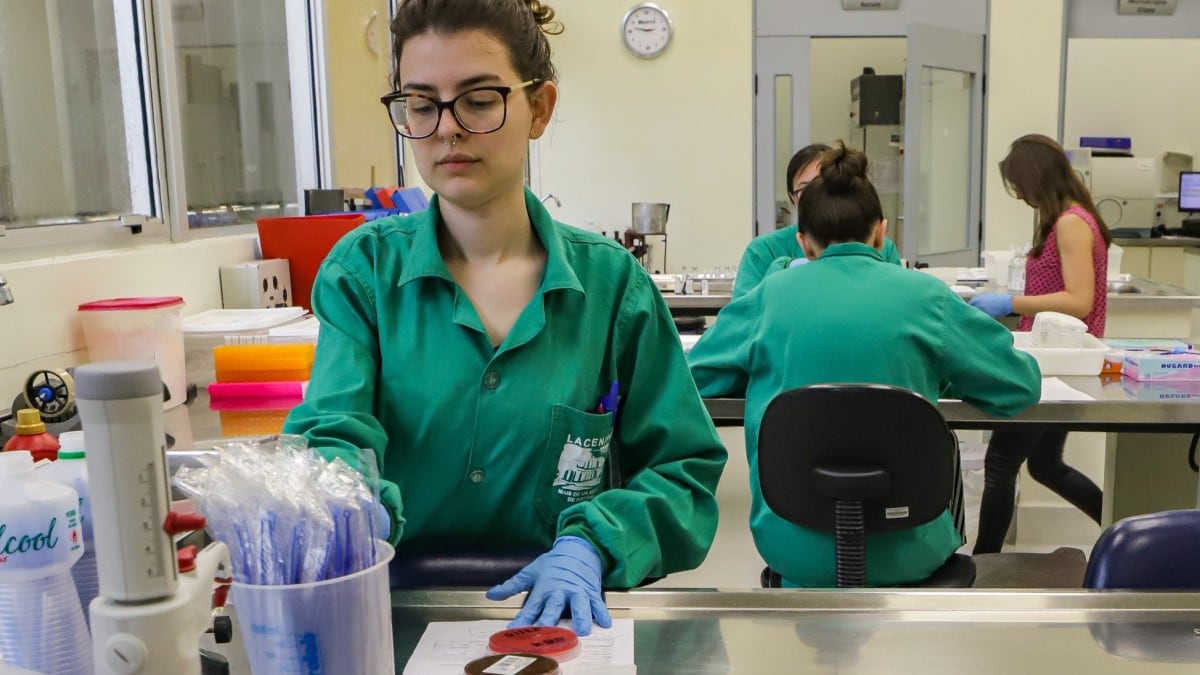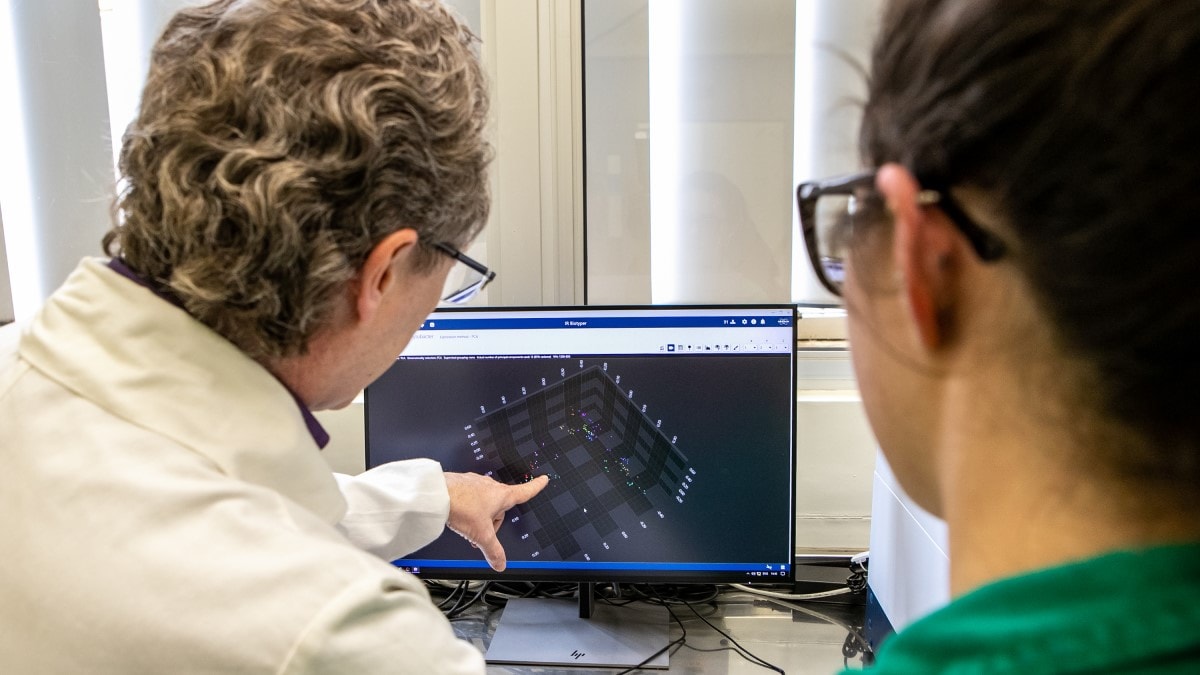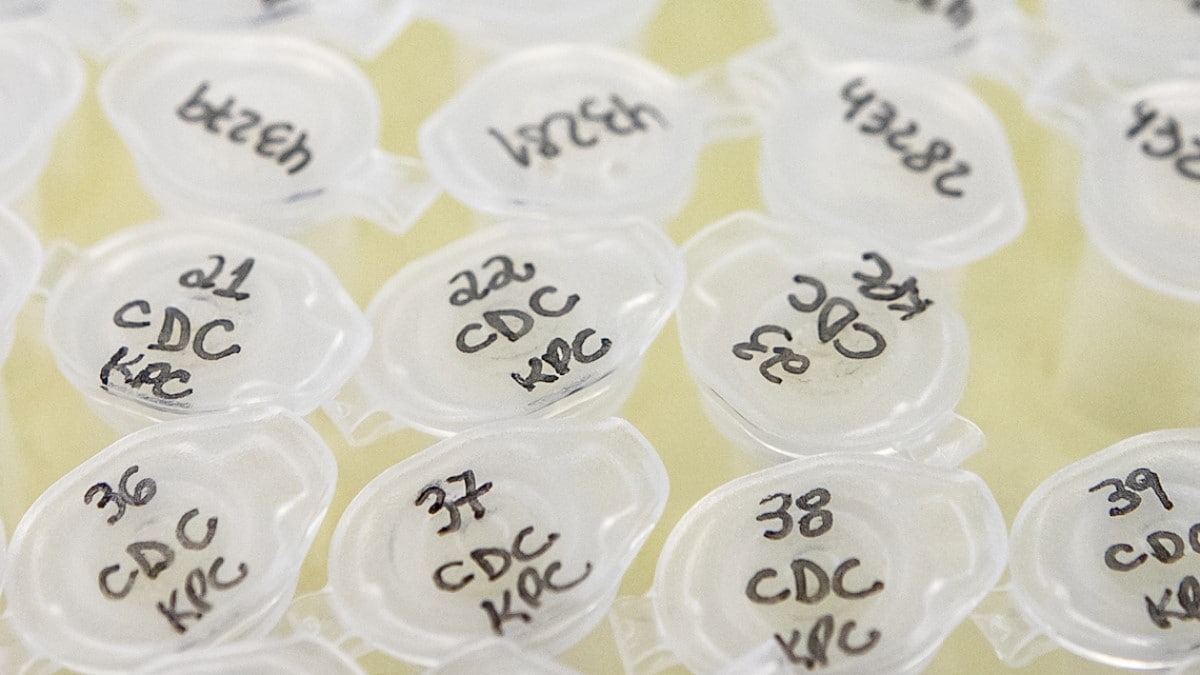Key points
- As part of the Global Antimicrobial Resistance Laboratory and Response Network (Global AR Lab & Response Network), CDC and partners are working to help laboratories in Brazil better detect critical antimicrobial resistance (AR) threats and report them rapidly to staff at local and national levels.
- Enhanced AR detection and reporting will help guide treatment choices, inform AR prevention and response actions, support AR public health policies, and contribute to national and global AR surveillance efforts.

Improving Detection & Reporting of AR in Brazil
Posted: May 2023
As part of CDC’s Global AR Lab & Response Network, CDC, in partnership with the Oswaldo Cruz Foundation (FIOCRUZ) through the Foundation for Scientific Technological Development in Health (FIOTEC) and the Brazilian Ministry of Health (MoH), through the Surveillance Secretariat in Health and Environment, is supporting the National Public Health Laboratory Network to strengthen AR detection and reporting in Brazil, the largest country in South America.
Enhanced AR detection and reporting will help guide treatment choices, inform AR prevention and response actions, support AR public health policies at the State Secretariats of Health, the National Health Surveillance Agency and the MoH, and contribute to national and global AR surveillance efforts.
Building lab capacity for AR data collection
FIOCRUZ, in collaboration with the Health and Environmental Surveillance Secretariat of the Brazilian MoH, the state public health laboratory in Paraná (LACEN-PR), and the National AR Laboratory (LAPIH-FIOCRUZ) have worked with 15 hospitals across Brazil and 5 regional reference laboratories to survey current lab capacity, procure needed supplies for detection of AR genes, implement standardized procedures for lab testing and train staff.
To date, 218 participants at 42 laboratories in 25 of Brazil’s 27 states, located at local, state, and regional levels have received training on pathogen identification, testing for identification of antimicrobial resistance profile and mechanism of resistance and integration of data into the National Antimicrobial Resistance Monitoring System of Brazil (BR-GLASS). Ten participants from regional reference labs will receive molecular methods and whole-genome sequencing training at LACEN-PR and LAPIH-FIOCRUZ.
An online bacteriology training series was also created. The series provides 56 hours of training covering topics ranging from basic microbiology to whole-genome sequencing. This series, given in Portuguese, allows expanded access to training within the network and for other lab capacity building activities in Brazil. It may also serve as a model for other countries in the region.
Using data for action
The participating labs integrate their data into BR-GLASS, a system that collects AR data from across Brazil. As reporting to BR-GLASS grows, experts will have a clearer picture of what types of antimicrobial-resistant pathogens are a problem in the country and where these pathogens are found.
These data will help refine the algorithm of the SMART-CDSS app, which can inform clinicians making decisions about antimicrobial use for patients. It will also guide the Brazilian Health Regulatory Agency (ANVISA) in the development and implementation of IPC activities to prevent the spread of AR in healthcare facilities.
Strengthening BR-GLASS supports global AR monitoring efforts as well. The Brazilian MoH joined the World Health Organization's Global Antimicrobial Surveillance System (GLASS) in 2017, and BR-GLASS contributes data to this global system.



Partnership impact
With the success of the first year of collaboration, CDC is supporting FIOTEC to expand participation in the network to an additional 10 hospitals across all 5 regions in Brazil. Partnerships like this help CDC and collaborators better understand the spread of AR threats globally and help coordinate prevention and control efforts.
Learn more about what CDC and partners are doing around the world to detect, prevent and respond to AR.
